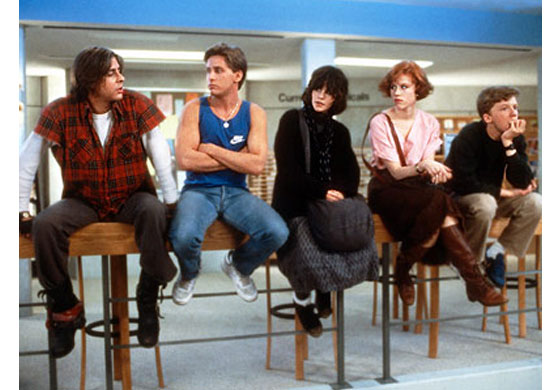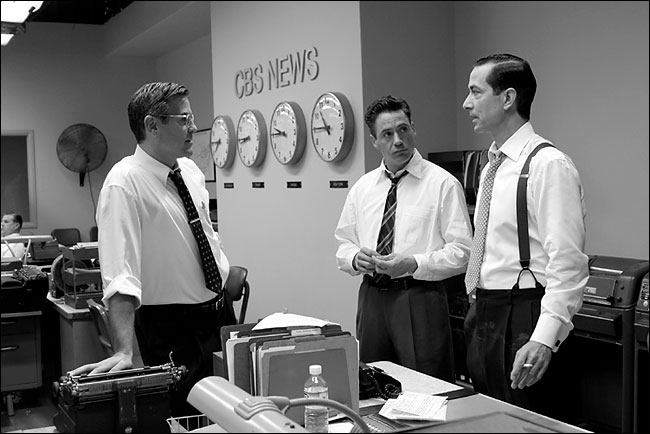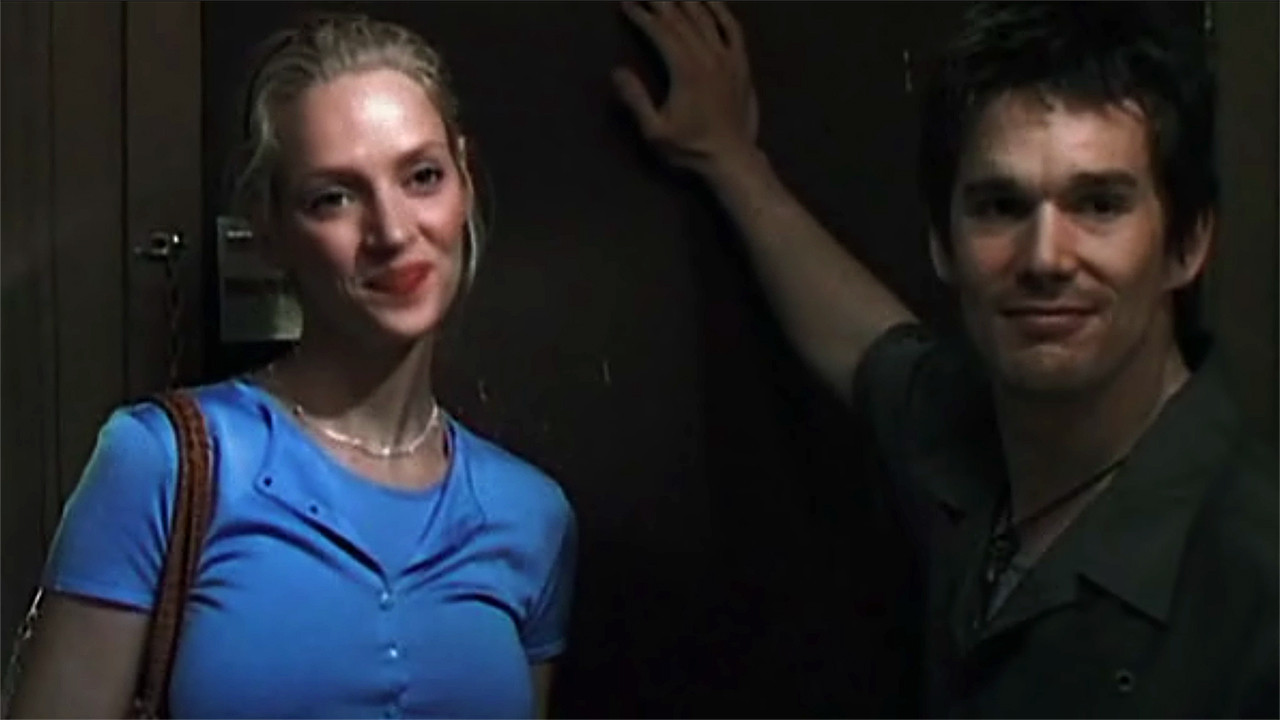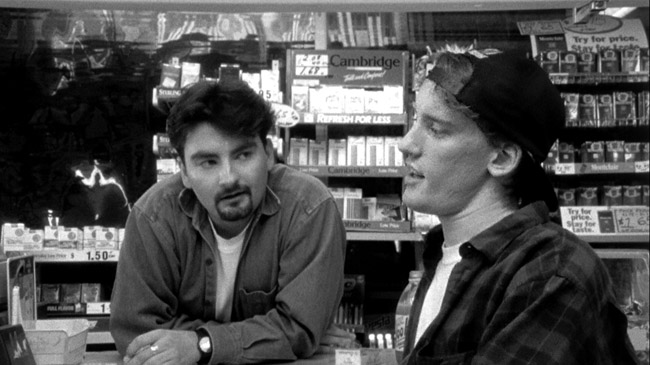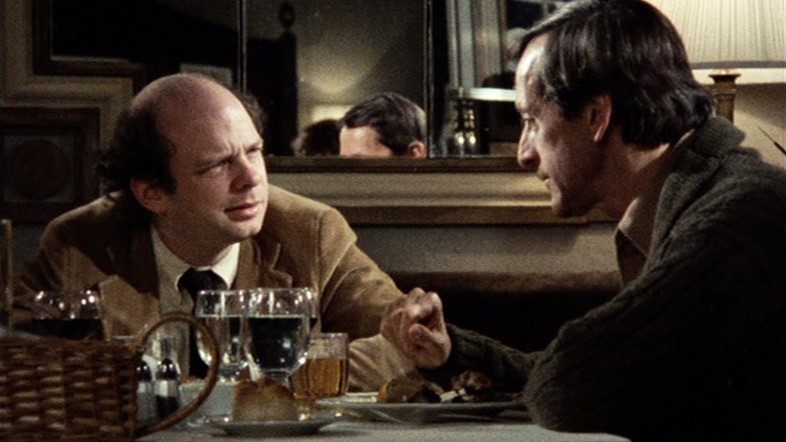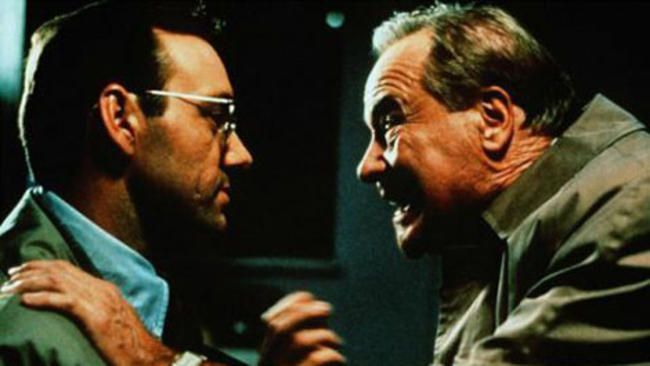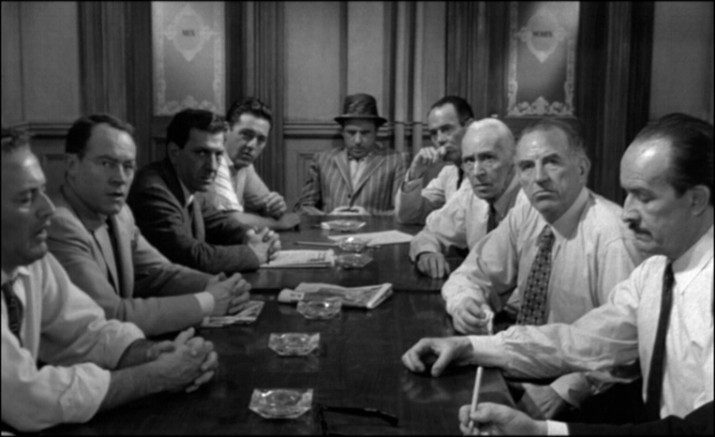8. The Breakfast Club (1985)
The Talkie: Perhaps the ultimate high school film and one of the definitive films of the 1980s. Surely everybody knows this one – five different high school clichés have landed themselves in Saturday detention for various reasons and although they at first clash, they begin to see certain similarities within each other.
Despite its popularity, the film is not often noted for its amount of dialogue but it certainly does include a good few scenes that consist of just that. The humorously awkward opening of Bender and Mr. Vernon exchanging insults for threats and the students baring their souls to one another late on are the obvious highlights of the films enjoyment through simple discourse.
On the surface The Breakfast Club is a relic of its generation, (see Hughes’ typical ending freeze-frame and characters going mad to a catchy non-diegetic song) but due to its central themes of identity, alienation, social-status and rebellion, it still remains timeless.
Best Line: Bender – “Does Barry Manilow know that you raid his wardrobe?”
7. Good Night, And Good Luck (2005)
The Talkie: George Clooney’s 50s set and strictly political drama concerning the efforts of a CBS news team that triggers a head-to-head war of rhetoric for the prosperity of America against Senator Joseph McCarthy. Good Night, And Good Luck is based on a true story and is essentially documenting how the boundaries of journalism were being tested in the then-new medium of television so shortly after its inception.
The intellectual denigration of McCarthy is led by Edward R. Murrow, brilliantly portrayed by David Strathairn in an underplayed and stand-out performance within an ensemble cast including Clooney himself, Jeff Daniels, Robert Downey, Jr., Frank Langella and Ray Wise.
The astutely chosen words and constructed sentences that are delivered by Murrow during the broadcasts are so coolly delivered and to-the-point that they could actually be considered to be works of art when in light of how serious the actual matter at hand was.
Best Line: Edward R. Murrow – “We have a built in allergy to unpleasant or disturbing information; our mass media reflect this. But unless we get up off our fat surpluses, and recognize that television, in the main, is being use to distract, delude, amuse, and insulate us, then television and those who finance it, those who look at it, and those who work at it, may see a totally different picture, too late.”
6. Tape (2001)
The Talkie: Richard Linklater’s second inclusion on the list and another starring one of his regulars, Ethan Hawke – Tape is one of the director’s lesser known works thanks to its low budget and low-key release.
Set entirely within the confines of a boxy motel room in Linklater’s oft-used real-time narrative timeframe, three high school friends decide to meet and reminisce about old times before going out to dinner. Secrets that were thought long forgotten re-emerge and lead to riled arguments, allegations and the revealing of shameful truths.
Ethan Hawke steals the show as the hot-headed, drug-addled ‘antagonist’, but the film as a whole gets under your skin and will have you reconsidering meeting up with old school friends to take a trip down memory lane.
Best Line: Amy – “People change. They end up having nothing to say to each other even if they were best friends years before.”
5. Rope (1948)
The Talkie: Two students act out a macabre fantasy of killing one of their classmates and then invite guests for a party whilst the body is hidden underneath where the food is being served. Though more often referred to as being one of Hitchcock’s most audacious efforts for its long-takes, this is also a film that creates so much of its concentrated tension from its dialogue-heavy scene(s) concerning topics such as superiority and murdering those considered “inferior”.
The preparation of the near-ten minute takes was to within an inch of their lives and the majority of the edits were masked so that the film appears to run seamlessly (cutting is often prompted by tracking into a characters back) so watching Rope feels as if you are simply eavesdropping on the surreptitiously disguised murderous boastings of Brandon (John Dall) or the ever-growing suspicions of Rupert (James Stewart).
It might not be considered a definitive text of Hitchcock suspense when compared to the likes of Strangers On A Train, Psycho or Rear Window, but Rope is still a highly entertaining and compact thriller – driven by brewing anxiety and witty exchanges.
Best Line: Brandon – “We killed for the sake of danger and for the sake of killing.”
4. Clerks (1994)
The Talkie: A day in the life of a New Jersey convenience store – where the endurance of eggs is tested profusely, hockey is played on the roof and old men jack off in the restroom. With a shoestring budget and shot on-location in the store in which he actually worked, Kevin Smith hit a home run right out the ballpark with his debut and plucked a chord with Generation X like no other American Indie film of the 90s.
Dante and Randal’s discussions are often enclosed within one-take scenes, densely packed with speech that is clearly written by someone with an ear for instinctive dialogue – and although sometimes the words may sound a tad awkward, it is still the groundwork which keeps the film engaging, off-kilter, and most of all, hilarious.
But, behind all the dick-jokes, protracted Star Wars debates and Jay & Silent Bob segues lies an inspiring message of taking charge of one’s life and not letting hopes fade and time be wasted – much like Smith’s experience of making Clerks, which The Snowball Effect documents. Clerks II followed and the highly anticipated third instalment is now on the horizon.
Best Line: Randal – “This job would be great if it wasn’t for the fucking customers.”
3. My Dinner With Andre (1981)
The Talkie: My Dinner With Andre is perhaps the film that adheres to this list the most – a feature length conversation between two people sat in a restaurant.
The film aligns the audience with Wally who, for the most part, is merely listening to Andre’s telling of his bizarre worldwide escapades before the two of them engage in a discussion of what actually constitutes to ‘living’ – whether it be simply residing in New York City or taking part in strange initiations in Eastern Europe.
My Dinner With Andre is a film which positively challenges the requirements of cinema and also fully conforms to Hugo Münsterberg’s theory concerning the medium’s ability to stimulate the mind’s eye – prompting the audience to actually envisage Andre’s strange experiences instead of the film simply utilizing flashbacks. In these respects, this film is in a league of almost entire exclusivity to itself.
Best Line: Andre – “Remember that moment when Marlon Brando sent the Indian woman to accept the Oscar, and everything went haywire? Things just very rarely go haywire now. If you’re just operating by habit, then you’re not really living.”
2. Glengarry Glen Ross (1992)
The Talkie: Based on David Mamet’s play of the same name, Glengarry Glen Ross is surely one of the best scripts of modern times – brought to life on the big screen by the electrifying, flawless performances of every cast member in this ensemble.
Alec Baldwin’s seven minute pep talk/incendiary tirade against the real estate salesmen has somewhat transgressed to legendary status in recent years and is perhaps one of the most famous scene-stealing moments in cinematic history. The film also takes the use of expletives and the directing of insults to an almost grandiloquent level of distinction – something that such curse-ridden films very rarely achieve.
Another part of Glengarry’s brilliance is that the audience often simply does not know whether to sympathize with the salesmen due to the harsh work principles imposed on them and the predicament it leaves their lives in. Or, whether to hold them in contempt for their conniving actions and use of sweet-talking language to take people’s money so they can win themselves a Cadillac Eldorado, or some steak knives. Or not get fired!
An essential film by any measure, but most importantly the performances and, of course, the thrilling dialogue.
Best Line: Blake – “You see this watch? …That watch costs more than your car. I made $970,000 last year. How much you make? You see pal, that’s who I am, and you’re nothing. Nice guy? I don’t give a shit. Good father? Fuck you! Go home and play with your kids. You wanna work here – close!”
1. 12 Angry Men (1957)
The Talkie: A classic by any standard and one of the greatest films ever made, 12 Angry Men is a master class of keeping the audience thoroughly entertained whilst carrying an almost tangible moral weight.
With ninety-three out of ninety-five minute duration taking place in a claustrophobic jury room containing nothing but twelve discordant personalities, the film brings scintillating confrontations and lecture-like adjurations – it is a film which features nothing but debate and never puts a foot wrong.
Henry Fonda, or Jury #8, is the compassionate lone juror sticking with his still-uncertain guns against eleven others voting guilty to send a young man to face the death penalty for murder. It is a superb performance from Fonda, but even so, everyone in the room gives stand-outs that form well-rounded and individually memorable characters which the film would be nothing without; E.G. Marshall and Lee J. Cobb getting particular mention.
Again, like many films that have been previously mentioned – there is never a use of flashback – once we are in the room, we are never taken out; the film deliberately insists that the audience pieces together the murder for themselves, just like the jury members. 12 Angry Men is simply a perfect film, not bad for ninety-five minutes of talking.
Best Line: Juror #8 – “I just think we owe him a few words, that’s all.”
Author Bio: Liam Hathaway has a lifelong passion of watching and reading about any/every sort of film which has lead him to be a Film Studies student at Sheffield Hallam University. His favourite directors at the moment are John Carpenter, Ben Wheatley, Werner Herzog and Martin Scorsese.
